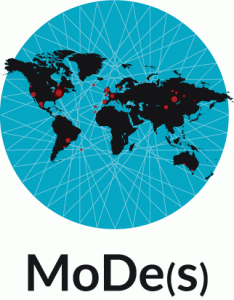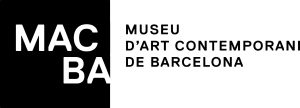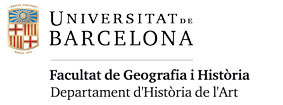“Facing the nostalgia of the past, being aware that we are builders of the future”:
Scenarios, representations and transformations of labour in the global world
MACBA
Auditorio del Convent dels Àngels (entrance by the CEDOC, 1st floor).
28 November 2018
Seminar of the Research project MoDe(s)2 with the participation of the working group Working Dead. Escenarios del postrabajo (Marta Echaves (curator and researcher) / Antonio Gómez Villar (researcher and professor of philosophy at the UB) / María Ruido (visual artist, researcher and professor in the Department of Visual Arts and Design, UB ) and Guillermo Fernández (UCM) / Antón Fernández de Rota (CESUGA/ USC)/ Rafael Pinilla (UB/UOC)
The concept of labour has undergone several changes over the course of history. These changes not only refer to a relationship with the different ruling economic models, they are also related to transformations in the way of thinking, feeling and being of the human being. In other words, we have also to consider labour as a product of the multiple cultural revolutions that have occurred in the history of humanity.
From this perspective, the important economic transformations that took place at the end of the 1970s and the beginning of the 1980s led, among other things, to the loss of centrality of the factory as a privileged place of production. Material labour that was immediately productive lost its central role in the production process. This marked the extension of the processes of valorisation to the entire society, from the factory to the metropolis. After several decades of such decisive transformations, we are interested in getting into the variable geographies of the new composition of labor, opening different debates, problems and questions that allow us to approach the changes in the composition of the labor force, in the dynamics of capitalist valorization, in the lines of conflict and in the processes of constitution of subjectivities; to think how the conceptual field of recomposition of class has been redefined, a transit that has produced new subjectivities and has defined new cultural and political relations.
Program
Download pdf
12.00 > Presentation of the Seminar
12.15-13.15 > Guillermo Fernández (Universidad Complutense de Madrid) Libertad, orden y autocontrol: cómo la extrema derecha francesa ha politizado el sentimiento de extravío y desamparo de las clases populares / Conversation with Antonio Gómez Villar (Universitat de Barcelona)
13.15-14.15 > Antón Fernández de Rota (CESUGA/ Universidad de Santiago de Compostela) De la sharing economy, o de la colaboración de los capitales / Conversation with Antonio Gómez Villar
14.15 > Lunch
17.00-18.00 > Rafael Pinilla (Universitat de Barcelona/Universitat Oberta de Catalunya) Noticias desde el trabajo: crónica psicosocial de una década / Conversation with María Ruido (Universitat de Barcelona)
18.00-19.30 > Presentation of the film Estado de malestar (malestar_exhuberancia_anomalía) (2018) by María Ruido + conversation with Rafael Pinilla y Antonio Gómez Villar.
Seminar organized in the framework of the course “Ultimes Tendencies del Arte” of the Art History degree of the Department of Art History and the research project MoDe(s)2 – Decentralized Modernities: art, politics and counterculture in the transatlantic axis during the Cold War. HAR2017-82755-P in collaboration with the Excellence Project: Critical Cartography of Art and Visuality in The Global Age: New Methodologies, Concepts, and Analytic Scopes, Part III, (I+D MICINN: HAR2016-75100-P), Ministerio de Economía y Competitividad, the Grupo de investigación GRC: Art, Globalització, Interculturalitat, AGI/ART II (2017 SGR 577). Generalitat de Catalunya. Departament d’Empresa i Coneixement and La Virreina. Centre de la Imatge.
With the support of MACBA and the Department of Art History, Facultat de Geografia i Història, Universitat de Barcelona.





